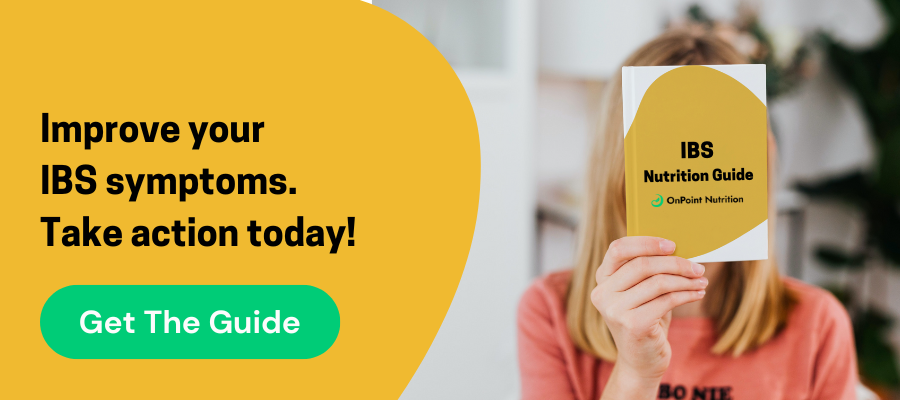
IBS-D is classified as “diarrhea-predominant” IBS. With all types of IBS, frequent abdominal pain or discomfort along with changed bowel habits are typical and can persist for many months or years. With diarrhea-predominant IBS, stools are usually loose and frequent, sometimes include mucus, and happen during the day while awake. These types of bowel movements are often accompanied by extremely uncomfortable abdominal cramps that are relieved after defecation.
Many people with IBS-D report being embarrassed by the condition and being held back from enjoying normal life events. Although there is no cure for IBS-D, there are plenty of treatment options to help keep symptoms at bay.
Diarrhea that frequently awakens a person from sleep is not typical for IBS-D and should be mentioned to your doctor.
What causes IBS-D?
Currently, researchers are not sure what causes IBS-D. However, we do know the characteristics and lifestyle factors that trigger IBS-D symptoms:
Visceral hypersensitivity
People with IBS often have heightened sensitivity in their gut, known as visceral hypersensitivity. Pain receptors in the intestines transmit pain signals during normal gut reactions (such as increased waste and gas), which is why people with IBS tend to experience pain during the digestive process.
Food
All types of IBS are typically exacerbated by certain food triggers. While everyone’s food triggers are different, there are common foods to avoid with IBS such as caffeine, spicy foods, fried foods, artificial sweeteners, and large amounts of raw vegetables. These foods can be harder to digest and irritating to the gut.
Stress
There is a strong connection between the brain and gut called the gut-brain axis. While stress is not a direct cause of IBS, it does exacerbate pre-existing symptoms and can often occur in a cyclical nature.
Hormones
Hormones are a common trigger for IBS symptoms, which is why women are disproportionately affected by this condition. Many women find that IBS-D symptoms are worse around their menstrual cycle.
Are there changes I can make to alleviate my IBS-D?
Figuring out how to deal with IBS-D can be complicated and frustrating, as different approaches work for different people. Our preferred treatment methods include diarrhea-prominent IBS diet and lifestyle modification. In extreme cases, there are supplements and medications available that can help alleviate symptoms.
Diarrhea-prominent IBS diet tips:
- Eat smaller, more frequent meals
- Reduce caffeine intake.
- Include moderate exercise regularly (link to IBS and exercise blog- don’t have link yet)
- Decrease or quit smoking
- Avoid alcohol
- Avoid caffeine
- Consume vegetables cooked vs. raw
Best supplements for IBS-D
The best supplement for IBS-D is a fiber supplement, such as psyllium husk (Metamucil). However, before starting a supplement, we recommend increasing soluble fiber naturally through diet. Food sources rich in soluble fiber include oats, peas, beans, apples, citrus, carrots and barley. Soluble fiber will help to add bulk to the stool and slow down motility.
Exercise and IBS-D
Exercise can help alleviate IBS symptoms. However, monitor your workout length and intensity closely. Higher intensity workouts speed up gastric motility, so people with IBS-D may experience severe symptoms during or after a vigorous workout (If you’ve ever heard of the term “runner’s diarrhea”, it’s a real thing). However, not all people with IBS-D will react negatively to high intensity exercise. Try varying your workouts to determine how much exercise your body can handle. The bottom line is, the best type of exercise is what works for you. Check out some of our IBS-friendly activities below:
- Walking
- Yoga
- Leisurely biking
- Bodyweight strength training
- Organized sports
- Low impact aerobics
- Swimming
- Stretching
- Tai Chi
- Rock climbing
Does IBS-D put me at risk for any other conditions?
Risk factors for IBS include:
- Abnormal (too fast or slow, or too strong) movements of the colon and small intestines
- Hypersensitivity to pain caused by gas or full bowels
- A viral or bacterial infection of the stomach and intestines (gastroenteritis)
- Small intestinal bacterial overgrowth (SIBO)
Are there medical reviews that I can read about IBS-D?
Yes, there certainly are! The scientific community continues to research IBS-D and test ways to improve its treatment:
https://www.ncbi.nlm.nih.gov/pubmed/26432092
To read more about foods to avoid, foods to eat, and how to make easy changes to your IBS diet to mitigate your symptoms, download our IBS Nutrition Guide.

Topics

Kaitlyn Willwerth is a Registered Dietitian at OnPoint Nutrition. Kaitlyn's work focuses on providing individualized health and lifestyle coaching and, most importantly, support. She is a Certified LEAP Therapist and has also completed the Monash University 'Low FODMAP Diet for IBS' online training course for health professionals.




